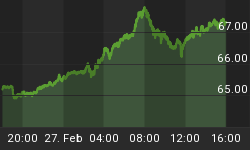Midst a steady drumbeat of weak-to-negative economic news out of the Euro-zone in the past few days, there was one report today that gives particular cause for concern - German manufacturing orders. Germany has been the 'zone's economic powerhouse in the past few quarters, continuing to see steady-to-strong GDP growth even as demand and output started to weaken, or even outright slide, in France, Italy, and Spain. However, falling demand from the neighbors is starting to take a toll.

German manufacturing orders dropped a steeper-than-expected 2.9% s.a. on the month in June and were down 6.1% on the year. One month of weakness may not be so unusual - after all, orders crashed for a month at the start of Q3 2007, then quickly picked up again. But the trend is disconcerting. This was the seventh straight monthly decline, the longest series of declines since German reunification way back in October 1990. Furthermore, it left orders down 4.1% q-o-q in Q2, the sharpest quarterly contraction in sixteen years.
The drop in orders in June was largely thanks to weaker demand from overseas, which dropped 5.1% on the month, with Euro-zone orders down 7.7%. Domestic orders slipped just 0.6%. In particular, capital goods orders were down 4.4% overall, with capital goods orders from the Euro-zone slumping 10.5%. Tomorrow's industrial output data for June is likely to confirm a slowdown in Q2. With indicators of domestic consumption also weakening, preliminary Q2 GDP data - due August 14 - will show negative growth, which adds to the probability that the ECB is done with rate hikes for this cycle.















